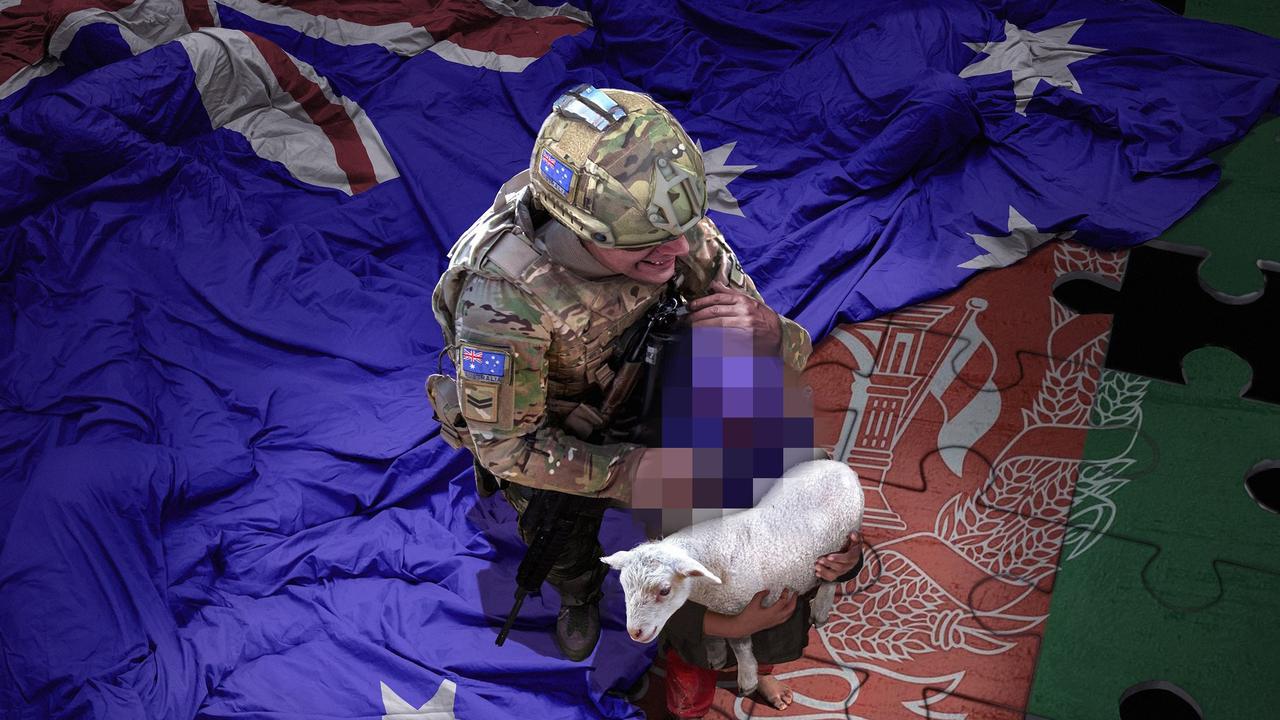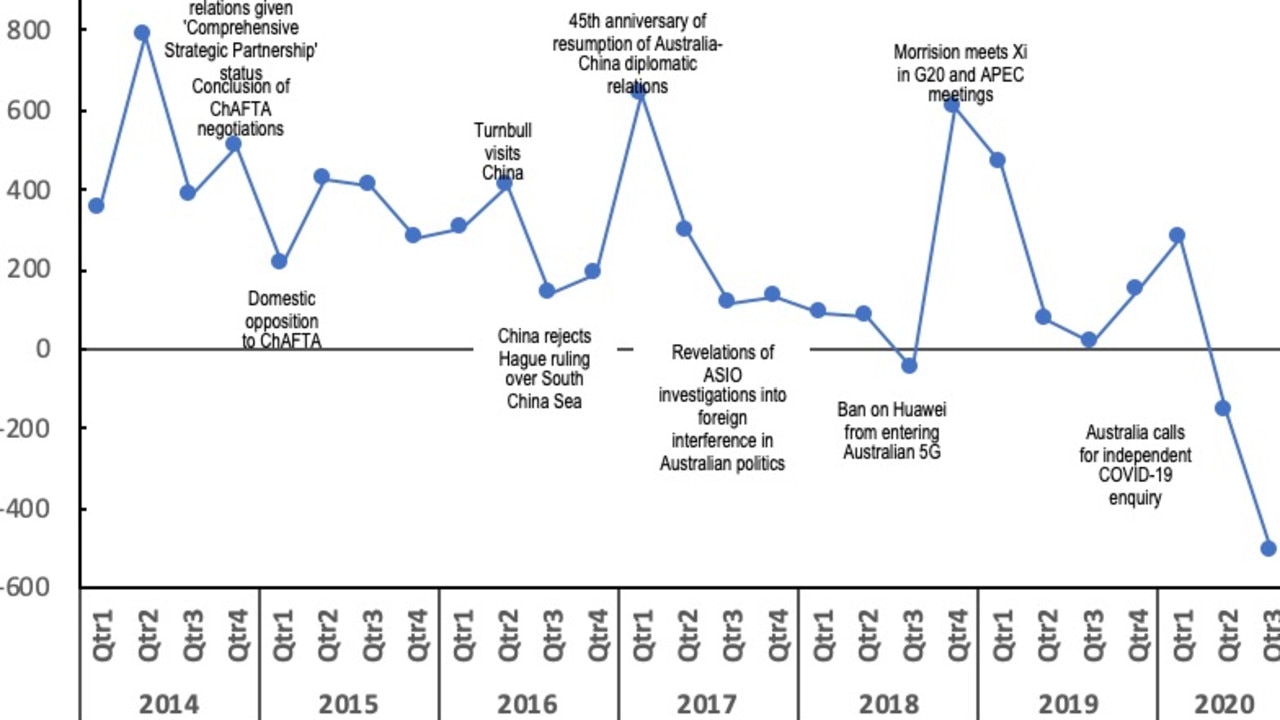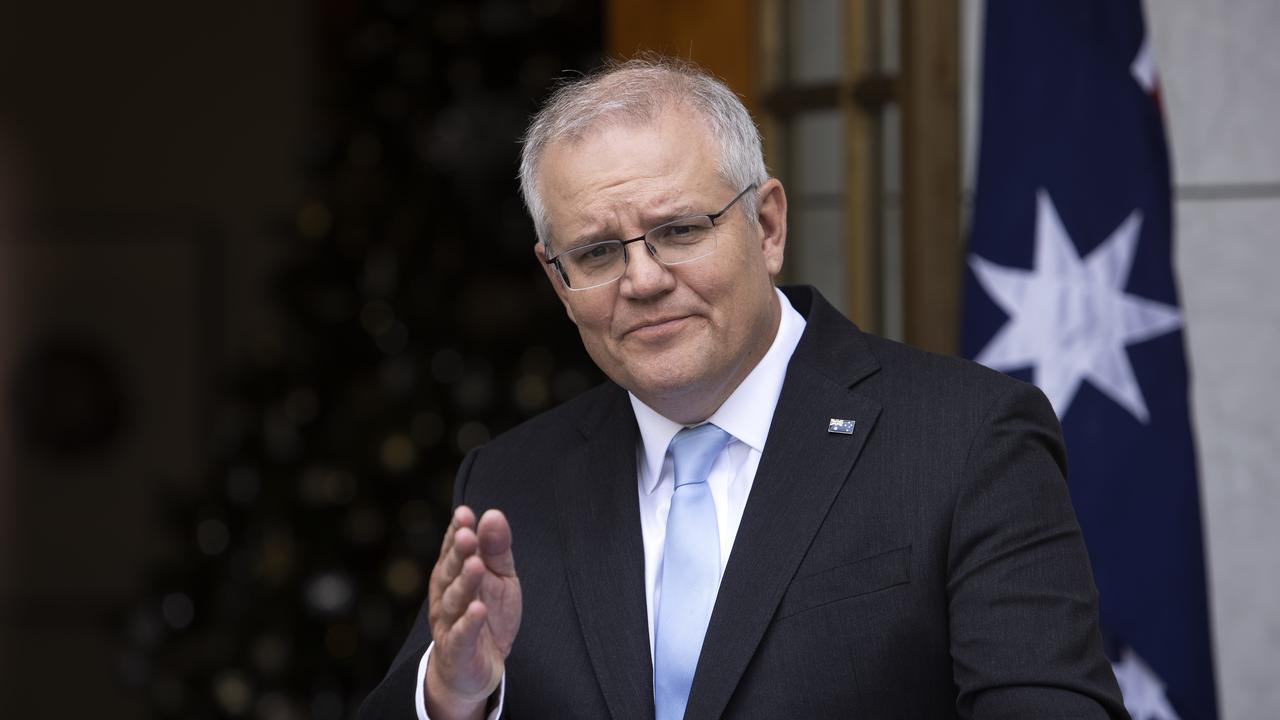Australia’s act that sparked feud, trade war and Twitter row with China
China destroyed its relationship with Australia this week, but those blaming our virus inquiry are missing something much bigger.

This week China took a sledgehammer to what was left of its relationship with Australia when a Chinese Foreign Ministry spokesman posted a tweet that set the world on fire.
Things hadn’t being going well between China and Australia for quite some time, but even by this year’s bizarre standards the gruesome image and Prime Minister Scott Morrison’s reaction to it, have pulled the two nations even further apart.
Professor Jane Golley from the Australian National University specialises in Sino-Australian relations and the Chinese economy.
She told news.com.au that the tweet could be seen as the next step after China leaked a bombshell dossier listing 14 reasons why it was “angry” at Australia in November.
She said the timing of the tweet is interesting given what has just happened across the Pacific – where Donald Trump, a US President who was hostile to China throughout his term, looks to be leaving the White House.
“China could have looked at the US election and decided that now is the time to signal to the rest of the world that if you treat Beijing like they perceive the way Australia has, you could be next in line,” she said.
However, she doesn’t believe that this is what was “top of China’s mind” when its government signed off on the now infamous tweet attacking Australia on Monday.
And, despite the commentary around the issue this week, she said the idea that this is all about Australia’s push for a COVID inquiry is misguided.
RELATED: Beijing slammed for ‘bully’ conduct

RELATED: Hypocrisy of China’s fake image tweet
She believes the affair runs a lot deeper than simply to the confines of 2020, and that things really started to head south between Australia and China back in 2012.
It was then that a single Australian act planted a seed that has dogged the relationship ever since.
That year, we banned Chinese-owned tech giant Huawei from participating in the NBN due to concerns about cyber attacks.
Salt was rubbed in the wound again six years later when the Federal Government banned Huawei from taking part in the rollout of 5G mobile infrastructure, again over national security concerns.
In a paper to be published early next year, Prof Golley and her researchers found that these two incidents had a profoundly negative effect on our relationship with China.
But things took a another plunge after revelations of ASIO reports into foreign interference in 2017, which resulted in the introduction of a new Foreign Interference and Espionage Act in 2018.
“That’s one of the big ones,” Prof Golley said. “China was really unhappy with that.”
There were moments over the years where the perception was that things were getting slightly better, like when Mr Morrison met Xi Jinping at the G20 and APEC summits in 2019.
However, the overall trajectory showed that all was not well between the two nations and in 2020, as we all know, the proverbial really hit the fan.
RELATED: Biden vows to stand with Australia in China stoush

Let’s break down just some of what’s transpired between the nations this year alone.
The coronavirus pandemic took hold, with early reports indicating it may have originated from a wet market in Wuhan.
In April, Mr Morrison called for an independent inquiry into the origins of the virus, and China reacted with fury and warned of a boycott on Australian goods.
Since then, China has dealt a series of trade blows, with everything from barley to timber and rock lobsters being slapped with sanctions.
In August, Australia hit back when Treasurer Josh Frydenberg ended the prospects of Japan’s Kirin group selling its $600 million Australian Lion Dairy and Drinks business to Chinese dairy firm Mengniu – saying the sale “would be contrary to the national interest”.
This year has also seen Aussie journalists evacuated out of China and accusations of “spying” levelled against Australia, while the situation worsened in July when Australia rejected China’s claim to “historic rights” to parts of the South China Sea.
The following month, China’s Deputy Head of Mission, Wang Xining, made a stunning speech at Canberra’s National Press Club outlining how Australia had wronged the nation.
RELATED: Former foreign minister warns of consequences of China tweet

In November, a bombshell dossier listing 14 reasons why China was “angry” at Australia was leaked, claiming they were “poisoning bilateral relations”.
And this week, laws are set to be passed that will give the Government the power to scrap agreements struck with foreign governments by states, local councils and universities.
The Coalition says the changes are about protecting Australia’s national security and sovereignty and it effectively gives them the powers to tear up Victoria’s controversial Belt and Road agreement with China if they see problems with it.
Then we get to this week.
If you’ve been paying attention to the news whatsoever, you’ll have noticed that things have really hit rock bottom.
On Monday, Chinese Foreign Ministry spokesman Zhao Lijian tweeted a “repugnant” fake image of an Australian soldier holding a knife at the throat of an Afghan child, drawing condemnation from Mr Morrison.
China has refused to cave into Mr Morrison’s call for an official apology and, on several occasions through its state media, doubled down on the controversial tweet.
So what becomes of the fractured relationship?
Prof Golley said something needs to give. An olive branch needs to be extended and the brutal economic reality of the situation is that Australia needs China more than they need us – so it’s probably going to have to be Mr Morrison who breaks the stalemate.
“Think of conflict in friendships or marriage where neither party is prepared to back down because it makes you look soft,” she said.

“But I sometimes think it takes the bigger person to extend a genuine olive branch or find some way to break the tension,” she said.
“I don’t think it’s a sign of weakness to show you want a better relationship in the future. If you don’t, just keep on provoking and we can watch our economy crumble and we can watch political tensions escalate as Australians lose jobs.”
“A Chinese official has recently repeated a phrase once use by Alexander Downer, that if you make China your enemy, it will be your enemy,” she said.
“Do we really want to make an enemy of the country that is going to be the most economically powerful country in the world this decade?”
She said it wasn’t about bowing down to China, and Australians are right to pressure them about their human rights abuses — such as the disturbing mass incarceration campaign against Muslims in its Xinjiang province.
However, she said there would be a serious reduction in the standard of living for Australians if the relationship and the trade stand-off worsens.
“If you recognise a power imbalance, and you recognise the fact that they’re not going away surely the best solution is to find ways to cooperate where we can,” she said.
– with Alexis Carey




